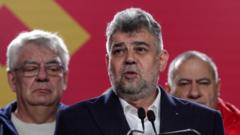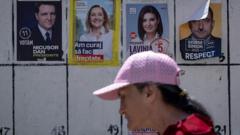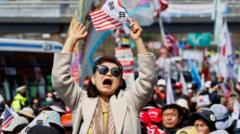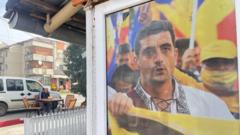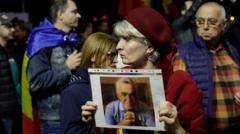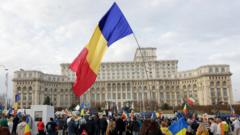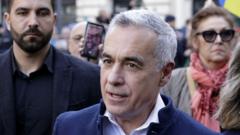George Simion, a nationalist candidate, won the first round of Romania's presidential elections by securing over 40% of the votes, demonstrating significant support for a pro-Trump agenda as he prepares for a runoff against centrist opponent Nicusor Dan.
Romanian Nationalist George Simion Advances in Presidential Race

Romanian Nationalist George Simion Advances in Presidential Race
In a political landscape shifting across Europe, George Simion emerges as a prominent right-wing figure following the first round of Romania's presidential elections.
George Simion, a right-wing nationalist candidate, has claimed victory in the initial round of Romania's presidential elections, signaling a notable shift in the country’s political atmosphere. With about 98% of the votes counted, Simion surpassed all ten competing candidates, achieving more than 40% of the votes. His significant support also extends to Romanians living abroad, a demographic known for their right-wing inclinations.
The results set the stage for a runoff election scheduled for May 18 against Nicusor Dan, the centrist mayor of Bucharest. This outcome not only hints at the Romanian electorate's affinity for nationalist rhetoric but also contrasts with recent political trends observed in nations like Canada and Australia, where candidates viewed as sympathetic to former President Trump faced voter backlash.
Simion stands as one of the few European politicians openly aligned with the MAGA movement, potentially indicating a different sentiment among Romanian voters. Furthermore, the election has been marked by discontent towards judicial decisions earlier this year, which annulled the initial vote that favored ultranationalist candidate Calin Georgescu, who has faced serious legal challenges.
As both Simion and Georgescu present themselves as advocates for ordinary Romanians opposing a perceived corrupt political elite, the upcoming runoff will be crucial in determining if this nationalist wave can translate into a presidency. The political dynamics within Romania reflect broader trends in Europe, where the rise of nationalist candidates continues to reshape the political landscape.

